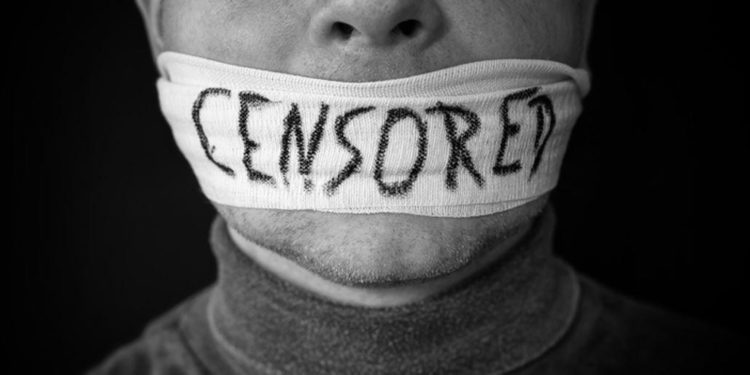If one boldly asserts the importance of the right of freedom of speech, it is almost inevitable that another will respond with one of the most common apologetic arguments for the government limitation of speech, “But you can’t yell ‘Fire!’ in a crowded theater.” The non sequitur argument is supposed to humble the right of free speech in favor of some government restriction. This argument fails logically because it does not follow that because a theater may restrict speech of those it admits through sale of a ticket that government must be empowered to legally restrict the speech of its citizens in general.
Additionally, the problem is largely theoretical and imaginary. This is a common tactic of statism and argumentation in favor of statism: Problem X might arise in society, therefore, government must prevent X by action Y. In other words, we are expected to believe that the government must legally restrict freedom of speech because otherwise people would be free to shout “Fire!” in crowded theaters. This is not the case logically or practically. Have you ever heard of this happening in real life?
With that said, where does this common argument come from and when was the first time it was used?
One might understandably think that this common colloquial example of why speech must be limited came from a case in which someone actually yelled “Fire!” in a crowded theater, causing panic, injury, or death. In fact, the “fire” example does not come from a law or case having to do with theaters at all. The statement comes from Schenck v. United States (1919), in which Justice Oliver Wendell Holmes Jr. stated on behalf of the unanimous court,
The most stringent protection of free speech would not protect a man in falsely shouting fire in a theatre and causing a panic…. The question in every case is whether the words used are used in such circumstances and are of such a nature as to create a clear and present danger that they will bring about the substantive evils that Congress has a right to prevent. It is a question of proximity and degree.
This famous statement, though most people have no idea where it originated, has been used for over a century to allegedly demonstrate the dangers or limits of freedom of speech. As such, this argumentation has been the foundation of many government restrictions of freedom of expression. Ironically, this case was a decision that people who passed out literature that claimed that the draft for World War I was a form of slavery, contra the Thirteenth Amendment, and encouraged others to resist the draft, could be legally prohibited from such speech. The case itself had nothing to do with theaters. It is not as if this was a pervasive problem in theaters across the United States, demanding federal government action to solve. Again, such an example of someone yelling in a theater in order to cause a panic is not actually an issue of freedom of speech but of property rights and contract.
Just as one who does not allow someone else to yell “Fire!” in his or her home without consent, the theater owner(s) and those who attend the theater have mutual expectations of one another, even if not stated directly. The purchase of a ticket allows one entrance to the theater, the viewing of a movie, access to the facilities like bathrooms, and the ability to litter. In return, the moviegoer agrees to an implicit contract to behave by watching the paid-for movie without disturbing others. People get removed from theaters all the time for disturbing others without yelling “Fire!” This issue does not come up that often because it hardly exists and is not a societal problem for which government(s) must restrict freedom of speech. The reason that this problem is uncommon is because implicit contract, informed consent, and property rights regulate the potential issues. The fact that such a vacuous example became such a compelling argument for the government restriction of freedom of speech in many other areas is disturbing. To summarize, Walter Block has argued concerning this very issue that
to override the right of free speech, for any reason, is a dangerous precedent, and never necessary…. The rights of theater patrons can be protected without legally prohibiting free speech. For example, theater owners could contract with their customers not to yell “fire!” … The situation would be entirely analogous to that of someone under contract to sing at a concert, but who refuses to sing, and instead lectures on economics. What is involved in both cases is not the right of free speech, but the obligation to honor a contract.




